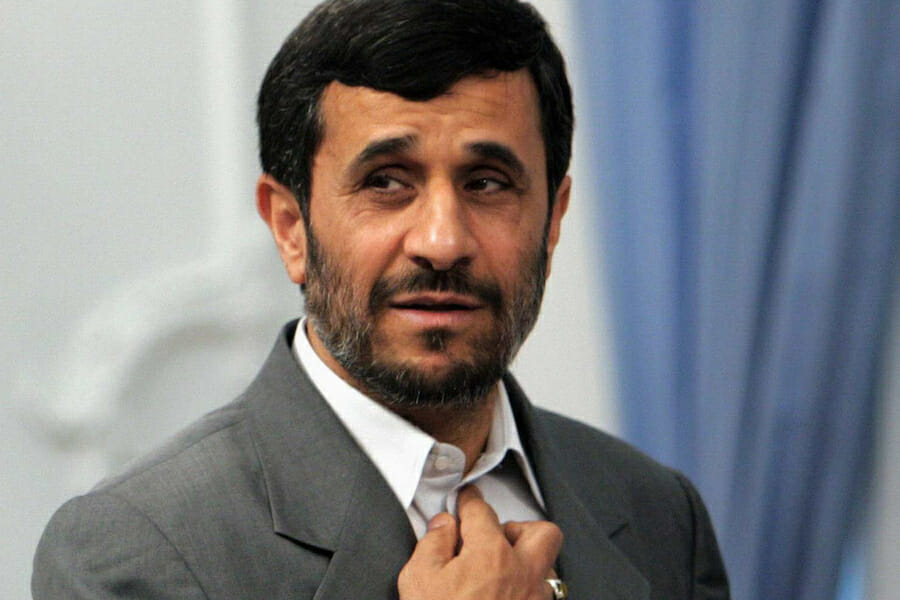
Moscow’s Dangerous Iran Policy
Russia relishes in its role as both the gate keeper to Iran and Tehran’s voice to the West. This bipolar Iran policy, however, is destined to backfire. The Kremlin perceives that its role as the principle interlocutor between Tehran and the P5+1 reaffirms in western and Chinese eyes Russia’s position as a global leader, while affording Moscow a key issue with which to leverage the West on matters of interest to the Kremlin.
While Russia has at times supported UN sanctions on Iran because of Tehran’s intransigence with its nuclear program, Moscow has done so timidly so as to not undermine ties with Iran or appear as if Russia is capitulating to western, and namely American, prerogatives. But by doing so, Moscow also buys Iran time to advance its nuclear program, makes the P5+1 look divided in the eyes of Tehran and the international community, and creates a moral hazard by appearing soft on states seeking to join the nuclear club.
Nevertheless, much like the West, Moscow recognizes that short of a military strike, there is little Russia can do to seriously curb Iran’s nuclear program. But by tempering western efforts to control Iran’s nuclear program, Moscow has garnered Iran’s help in, among other areas, limiting American and Chinese influence in Central Asia, and advancing Russian interests among hydrocarbon exporting countries.
Moscow and Tehran have also expanded trade and investment ties, and are cooperating to develop their energy sectors, such as through a joint oil exchange and Russian involvement in Iranian hydrocarbon projects.
While Russia and Iran have found common ground in some key areas, interests have diverged where the Kremlin is unwilling to breach western red lines regarding Iran’s military capabilities. For example, Tehran is furious with Moscow’s decision last year to abandon the agreed sale of S-300 missiles that fell under a UN Security Council sanction regime and which are of particular concern to the West because they would afford Iran an important defense capability against a potential aerial strike on its nuclear facilities.
By pursuing a policy that pays lipservice to both Tehran and the West but that does not fully commit to either side on the issue of Iran’s nuclear program, Moscow has put itself in the difficult position of not being able to push Tehran too hard without both antagonizing Iran and appearing as if it is a western puppet, but also not being able to push the West too far back without both alienating western states with whom Russia is also expanding trade and investment ties and looking as if the Kremlin is buckling to Tehran’s wishes.
Therefore, while Russia’s bipolar Iran policy garners it monetary gain, influence and perceived prestige, it also forces the Kremlin to choose middle ground positions on issues such as sanctions and cooperation with Iran, that have the simultaneous drawback of, on the one hand, not satisfying Tehran or the West by not fully supporting their position, and on the other hand, antagonizing either side for supporting, even partly, a position contrary to their interests.
The problem, however, with Moscow’s Iran policy lies in Tehran’s unrelenting ambition to join the nuclear club. Indeed, in addition to Iran’s failure to provide the International Atomic Energy Agency with guarantees that its nuclear program is strictly civilian in nature, a recent report from the UN nuclear watchdog indicates, among other advances, that Iran is accelerating its uranium enrichment capabilities, that it is moving parts of its program to less vulnerable underground bunkers, and that Iranian scientists are possibly engaged in research on nuclear warhead design.
As Tehran’s rapidly advancing nuclear program increasingly becomes indefensible in the eyes of the international community, one would expect Moscow to take up the western position on Iran. Doing so would at the very least afford the P5+1 greater clout, corner Beijing into supporting a stronger position on Iran, temper other emerging nuclear weapons programs, curb a nuclear arms race in the Middle East, and bolster Russia’s standing in much of the Arab world by attenuating perceptions that Moscow is helping Iran develop a nuclear weapon.
But because the Kremlin prioritizes maintaining ties with Iran so as to both avoid an impending nuclear Iran becoming a threat and keep reaping resultant political and economic benefits, Russia will continue to strike a balance between paying lip service to western concerns regarding Iran and tempering western efforts to constrain Iran. In this sense, Moscow depends on its superior military and the ties it builds with Tehran to guard against a possible Iranian threat, and recognizes that it will need Iran to contain both China’s growing regional influence and an increasingly unstable Afghanistan after NATO’s withdrawal this decade.
After Iran joins the nuclear club, however, Tehran’s ambitions will grow but its need for Russia’s help to keep the West at bay will diminish. It is then that the solidity of Russian-Iranian ties will be truly tested. It is likely that Iran will become emboldened to make greater demands from Russia in exchange for supporting Moscow’s Central Asia agenda.
Already shown to be an unreliable partner, should the Kremlin push back or say no, as it did with the delivery of the S-300 system, Tehran may be inclined to undermine Russian regional interests or turn to China–the country Moscow fears most– for arms, trade or investment in Iran’s hydrocarbon projects. But should Russia accede, it risks falling victim to a slippery slope of Iranian demands and potentially crossing western red lines. At the same time, as Moscow’s clout with Tehran diminishes, the West will ever less depend on Russia to keep Iran at bay. Being that western states also see Moscow as an unreliable partner, the West may be inclined to advance their own Central Asian agenda in Russia’s southern backyard or elicit China’s help in containing an emboldened Iran. Either way, Moscow will lose another means with which to buttress its international prestige and leverage the West.
By playing both sides, Russia will likely emerge as the biggest loser in this great game. Moscow must recognize that it can no longer walk the fine line between Iran and the West. It may, however, be too late for the Kremlin to choose the right side.

